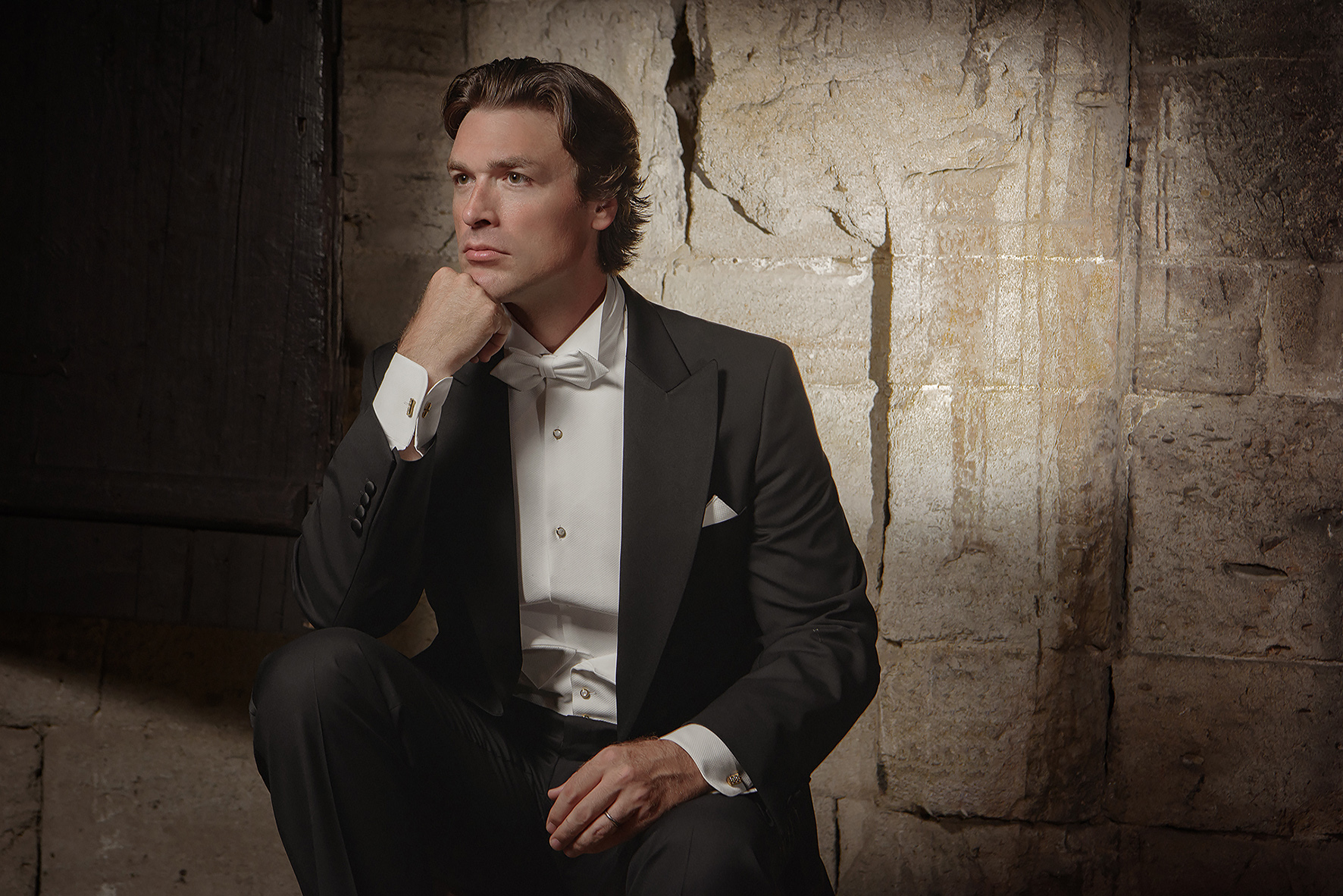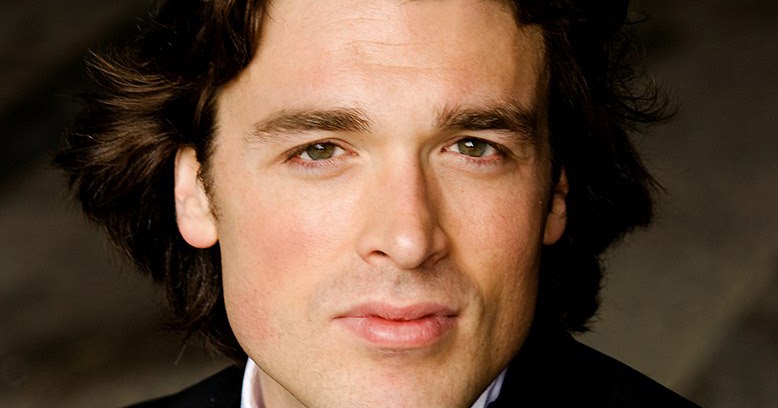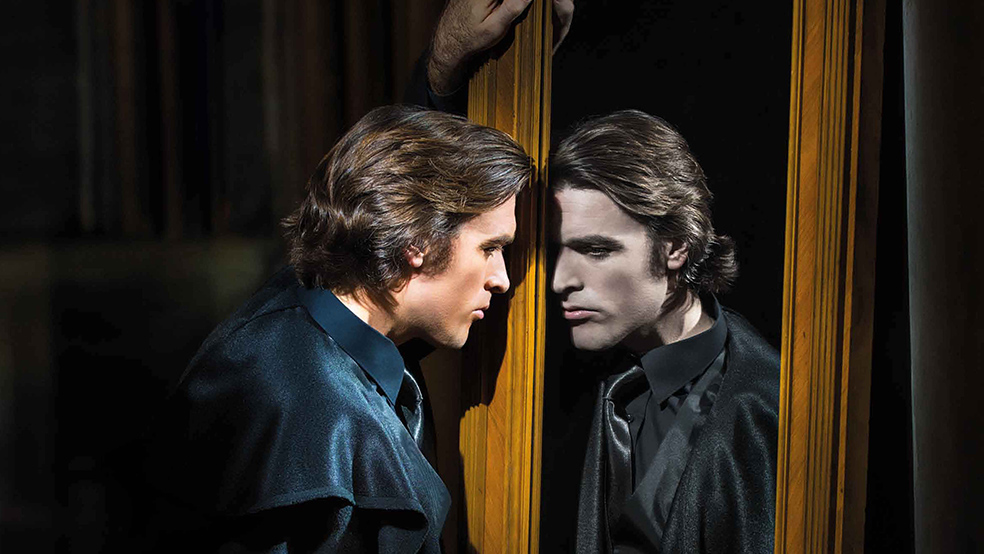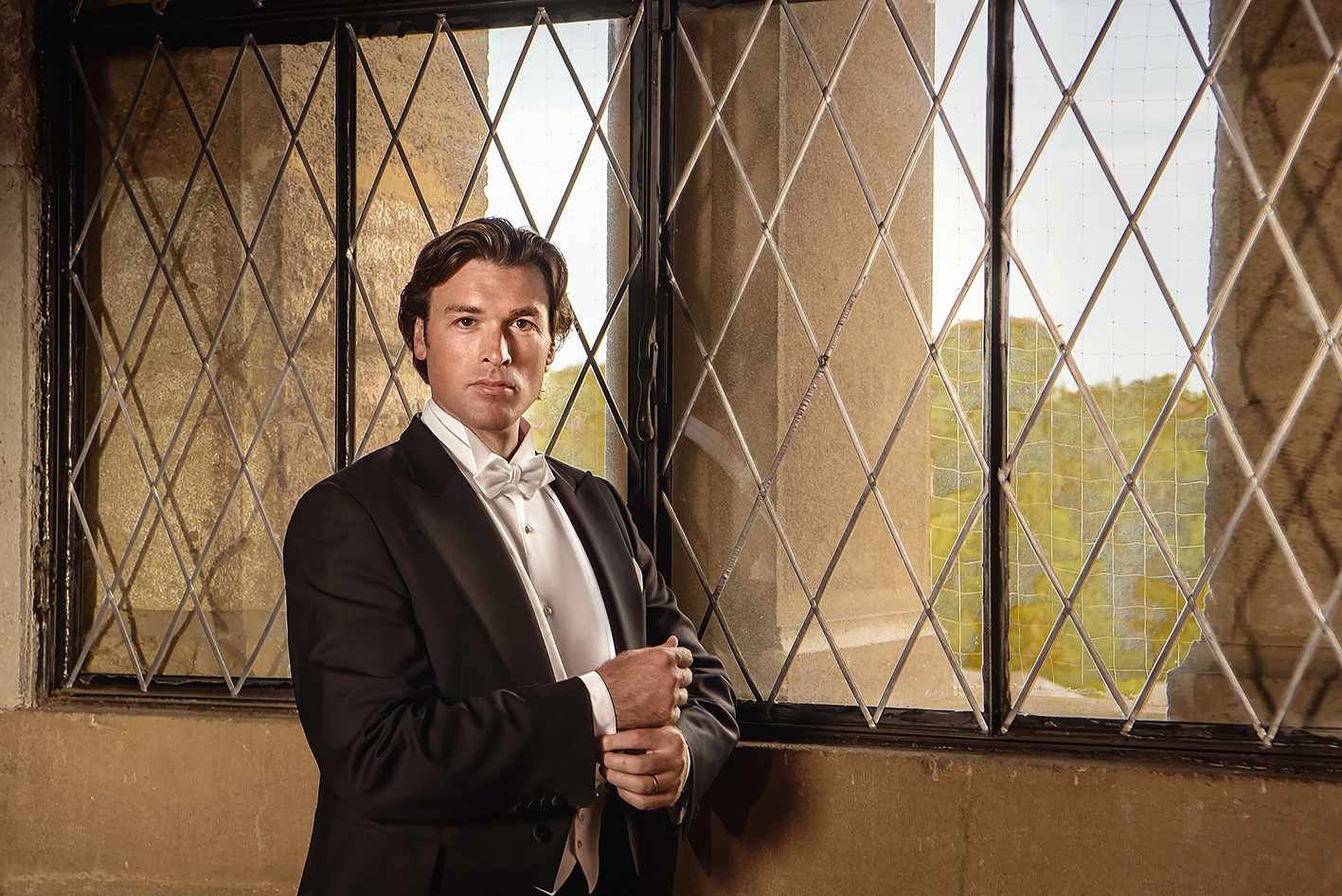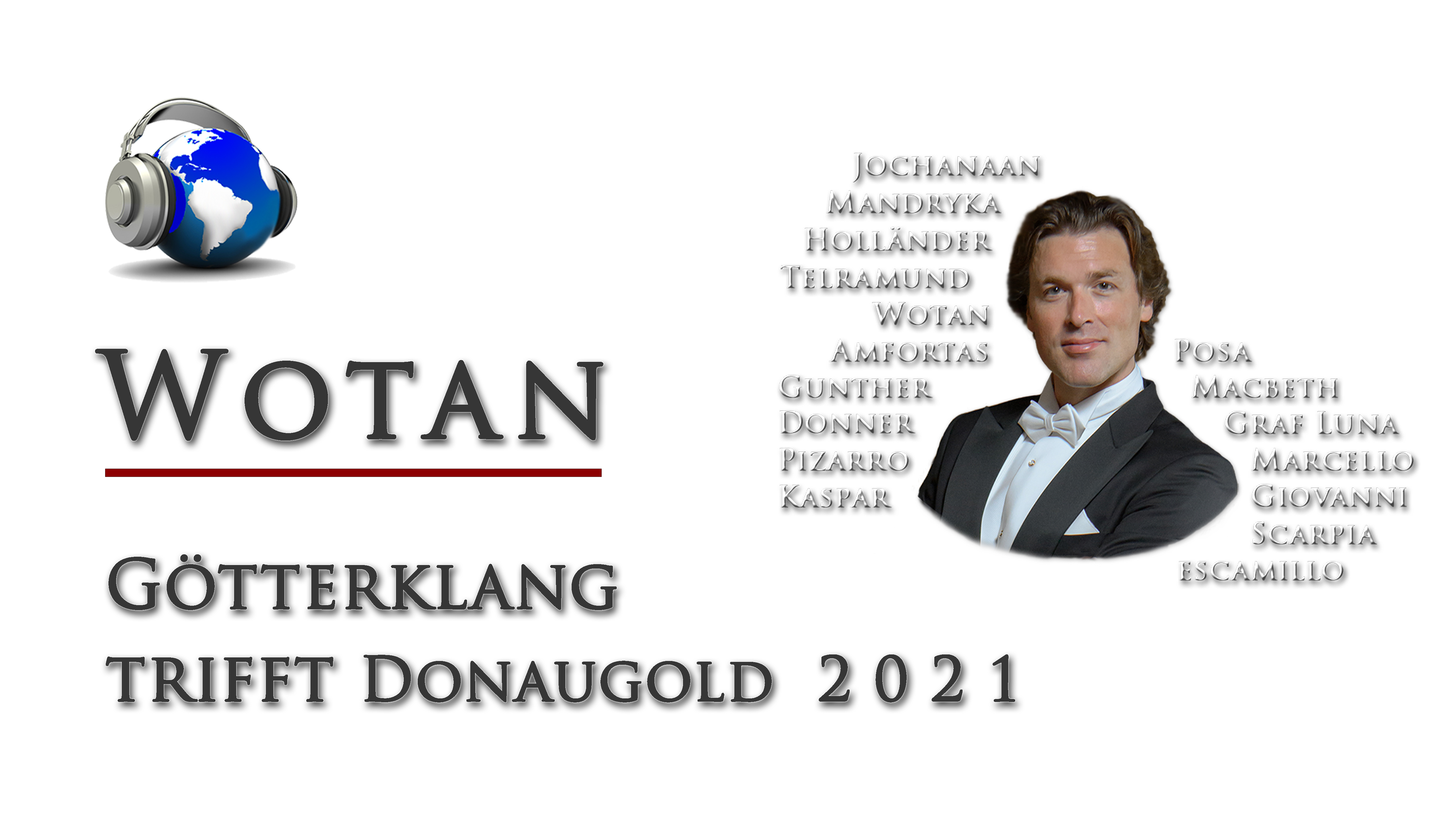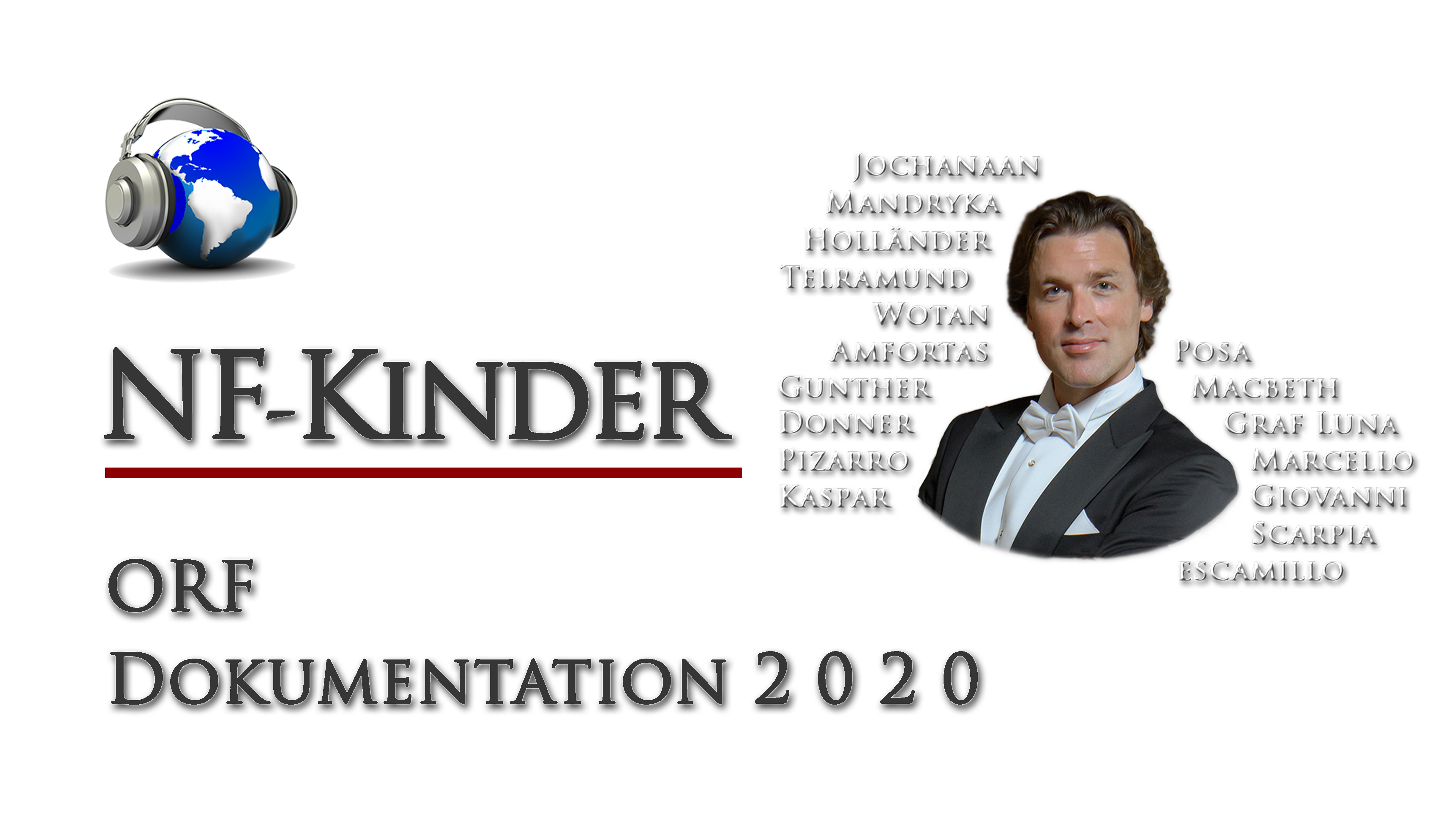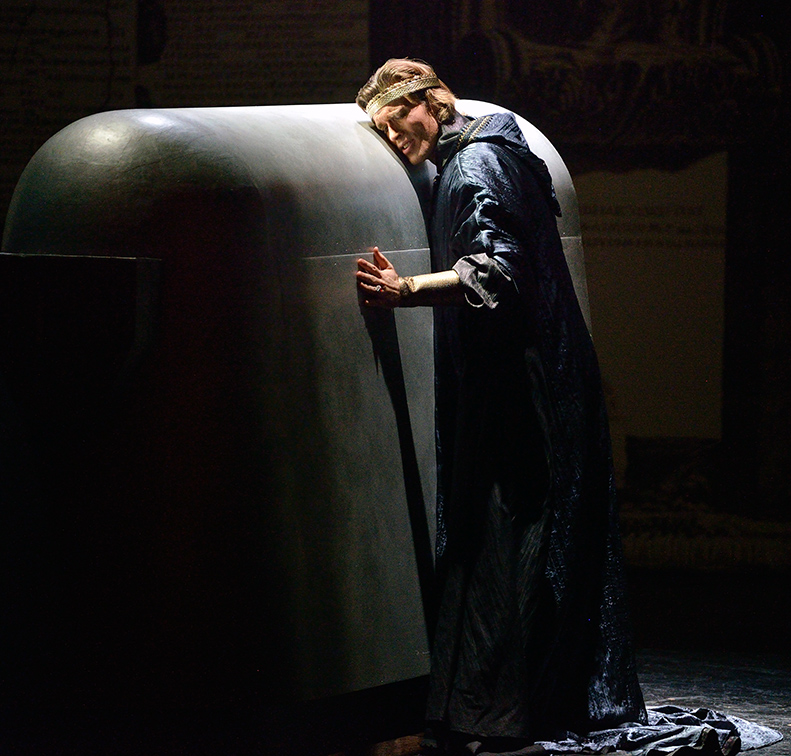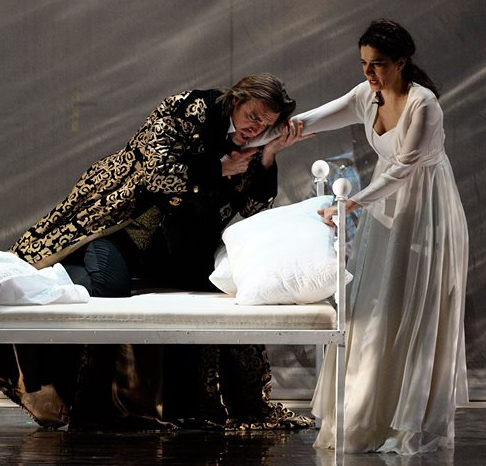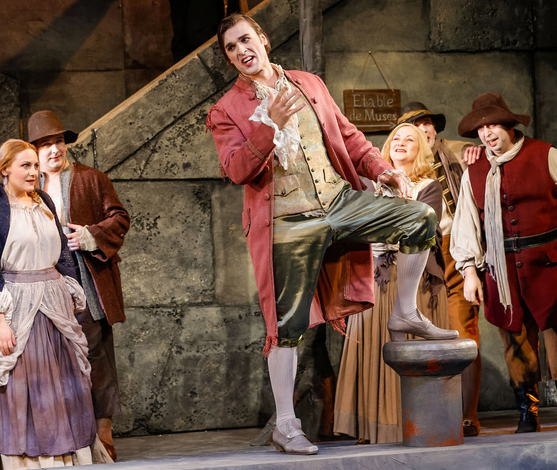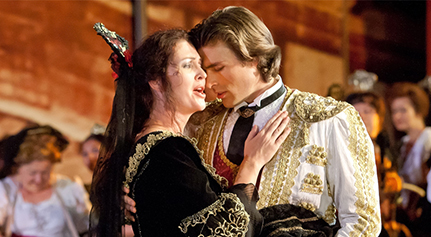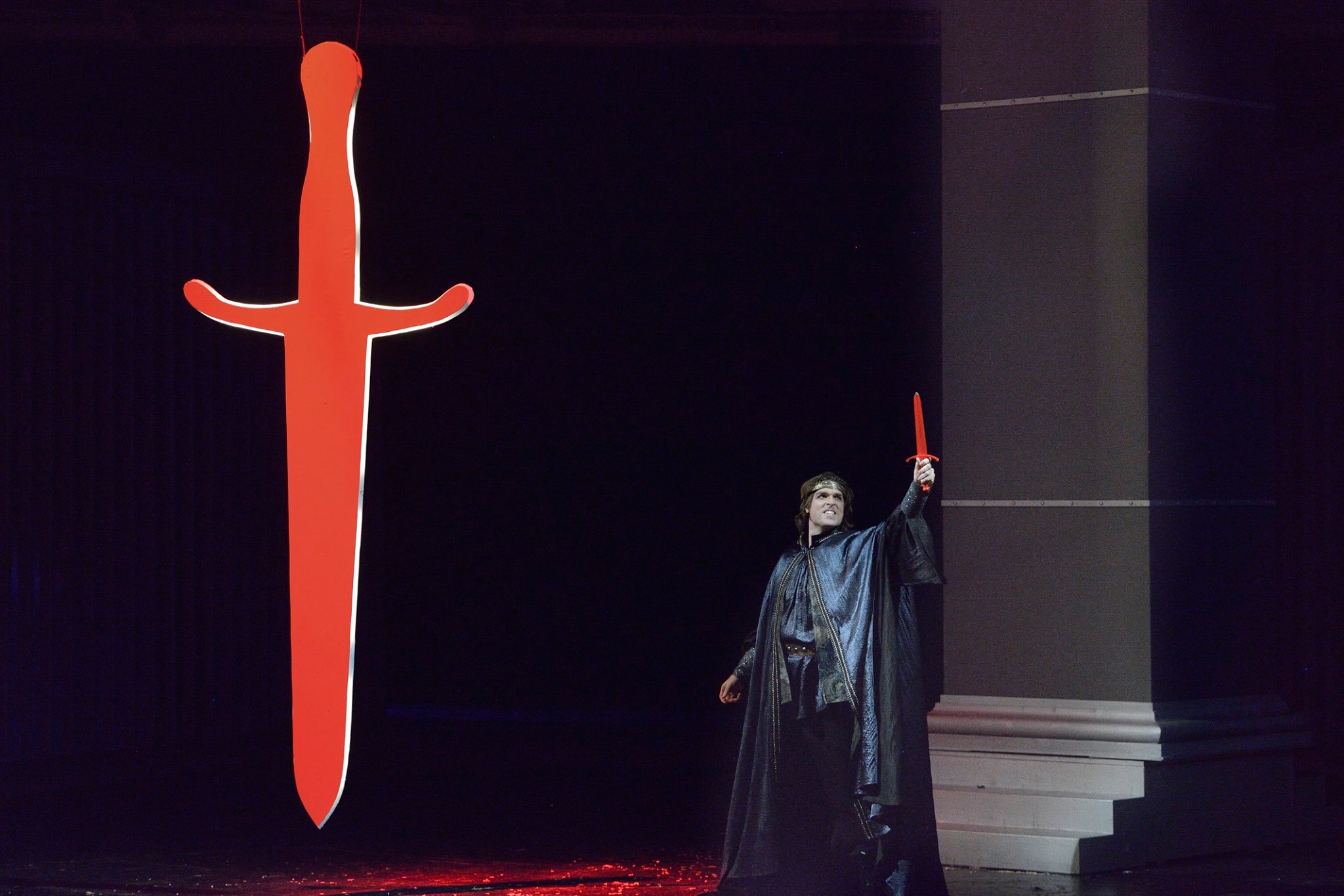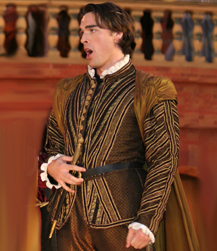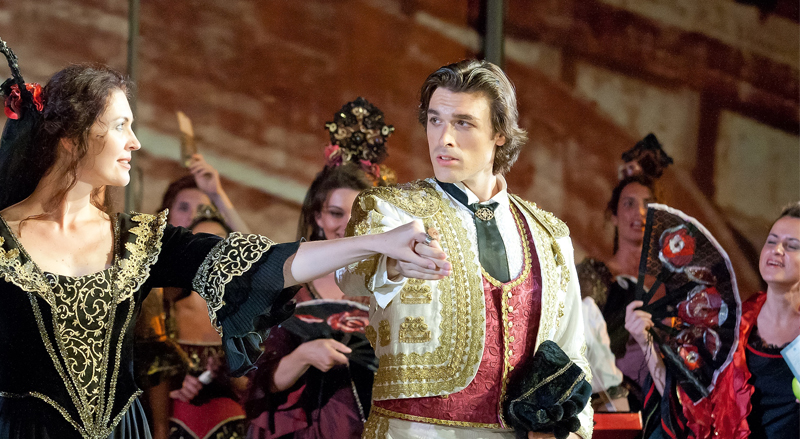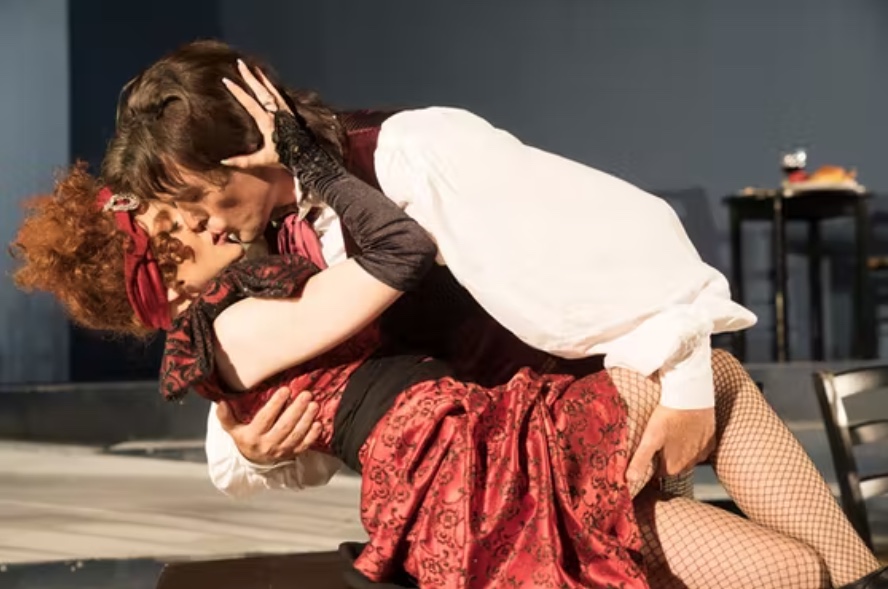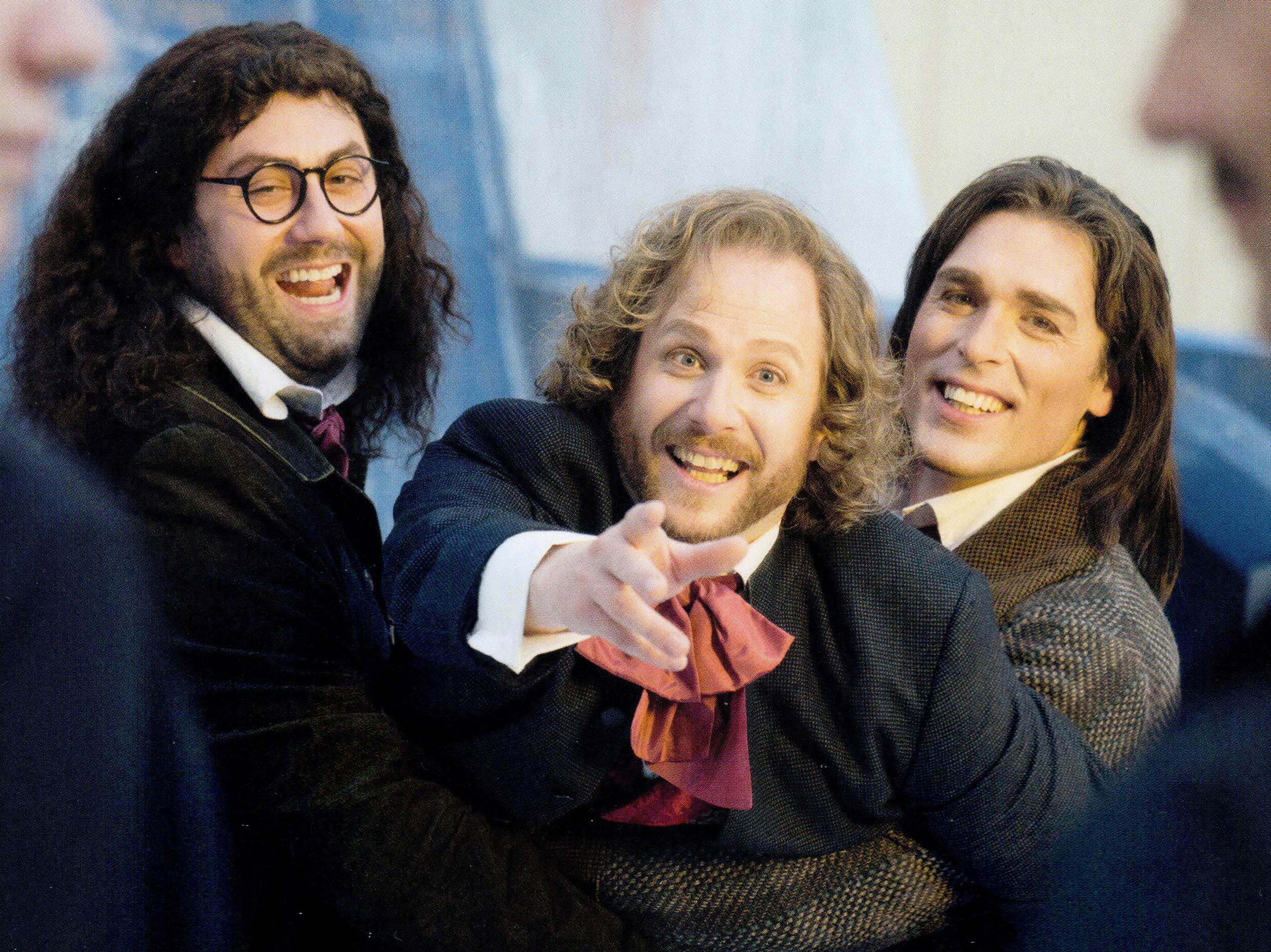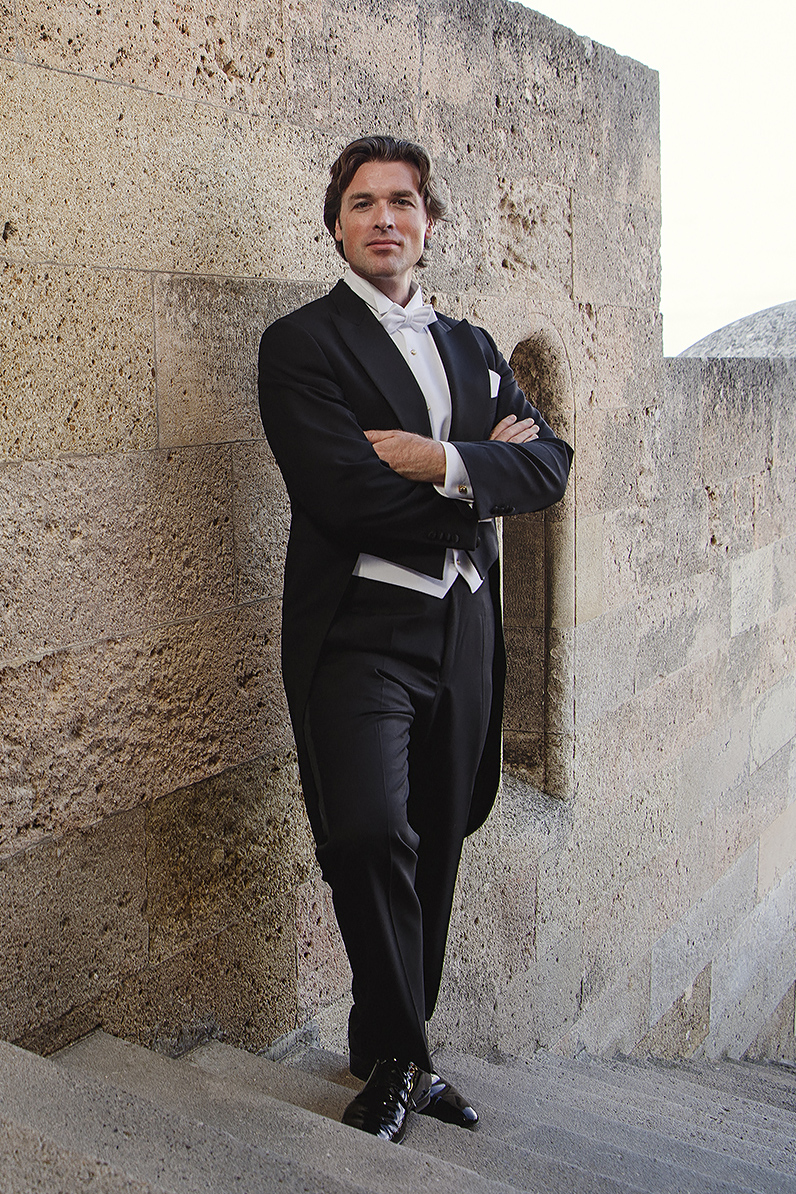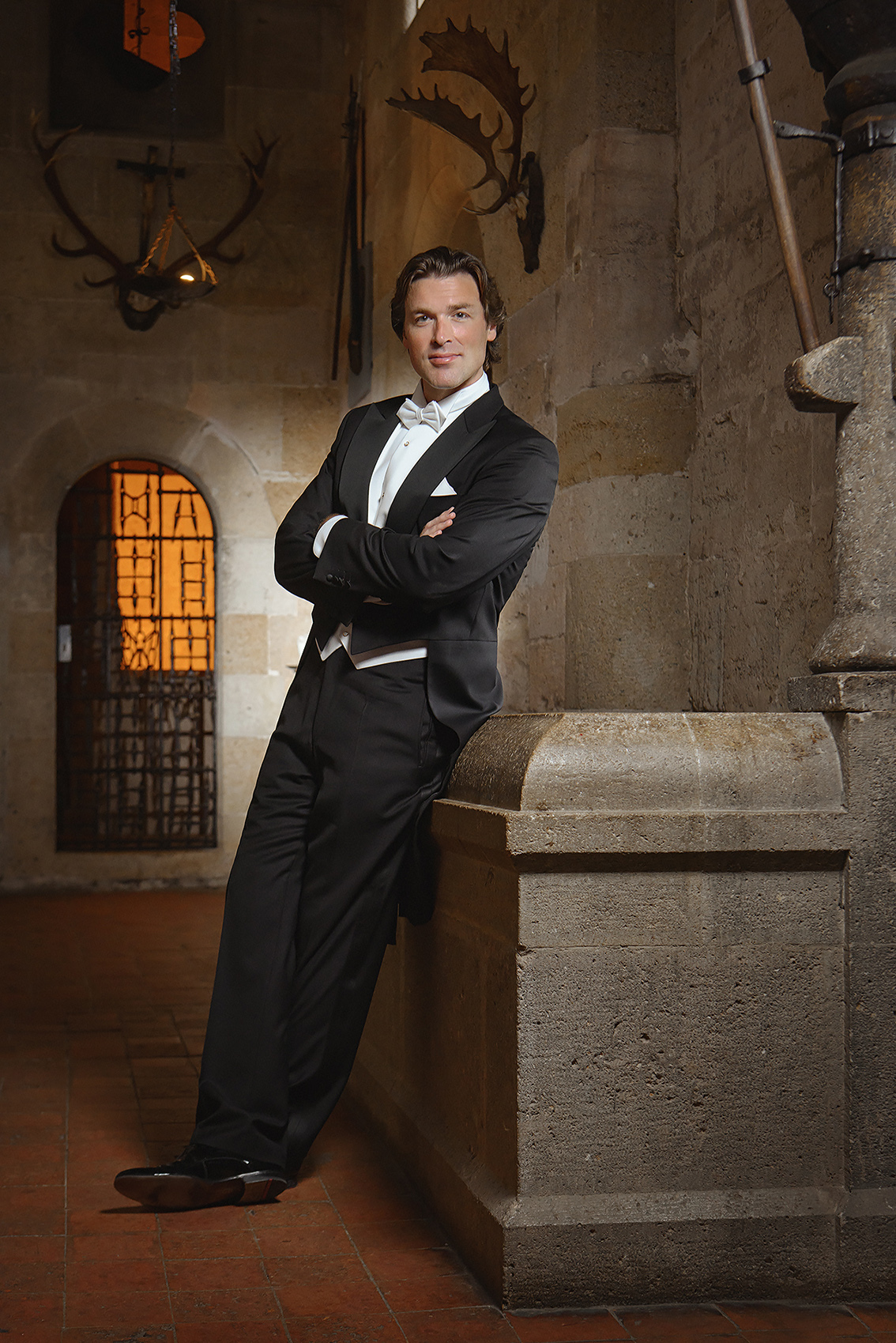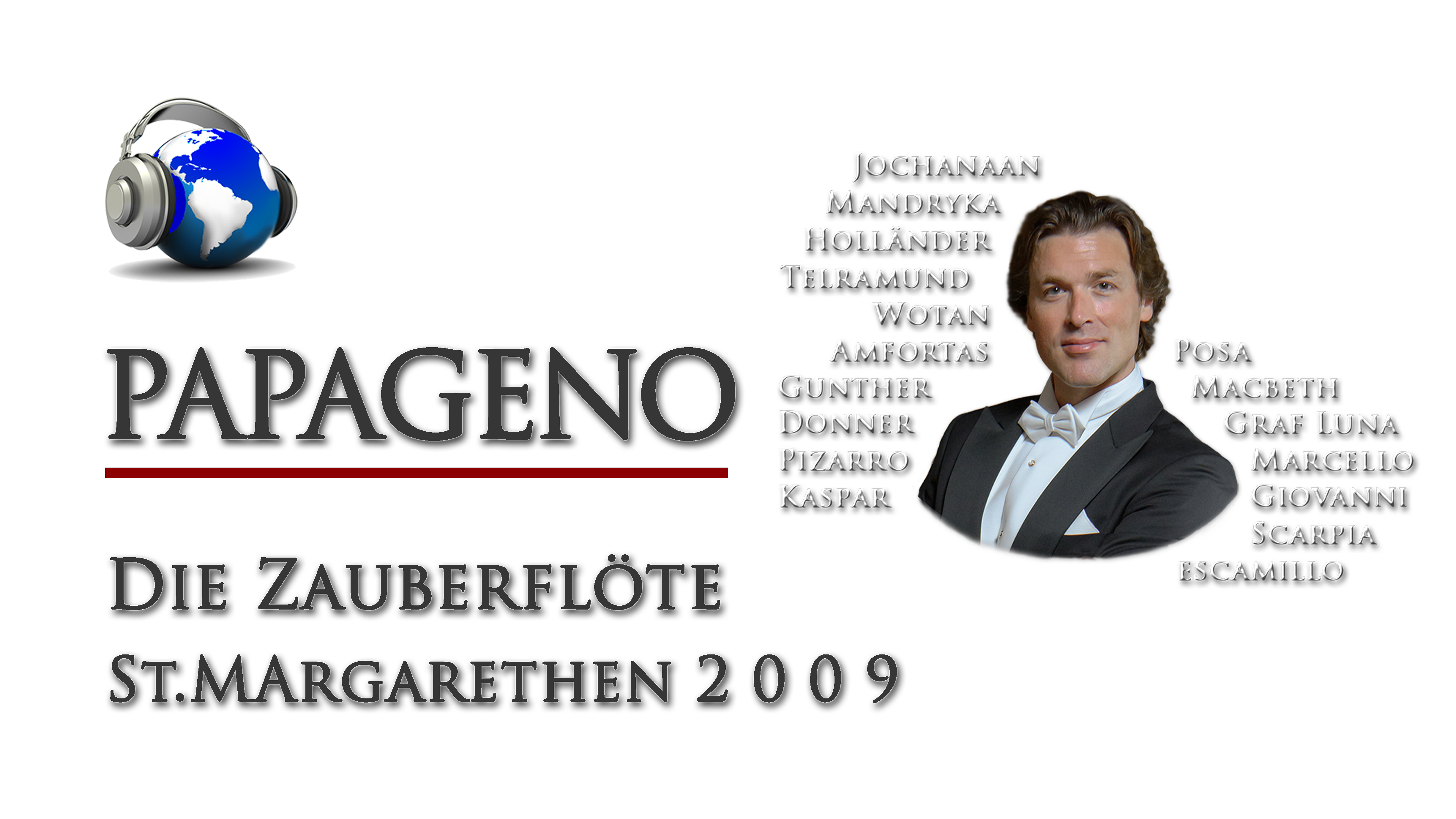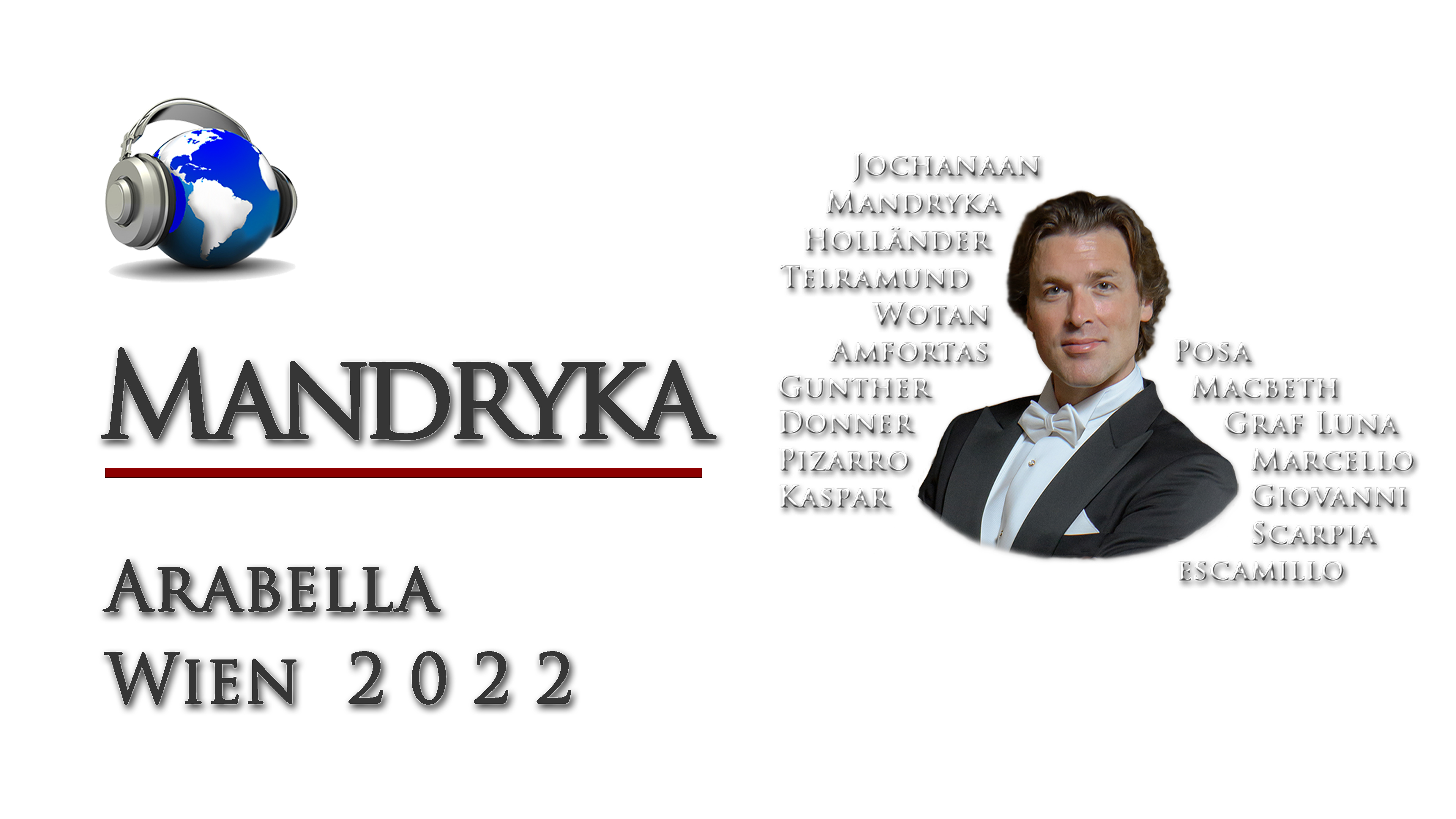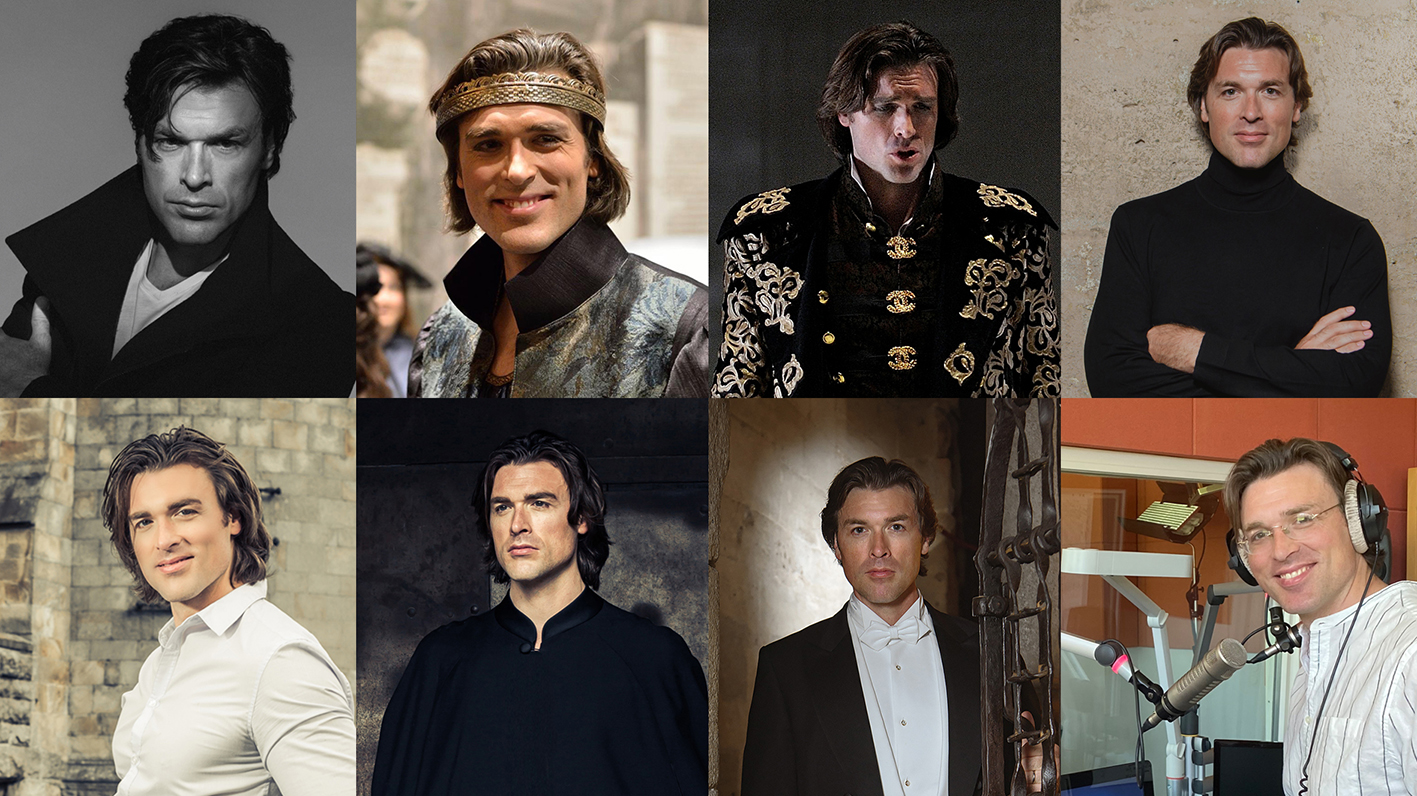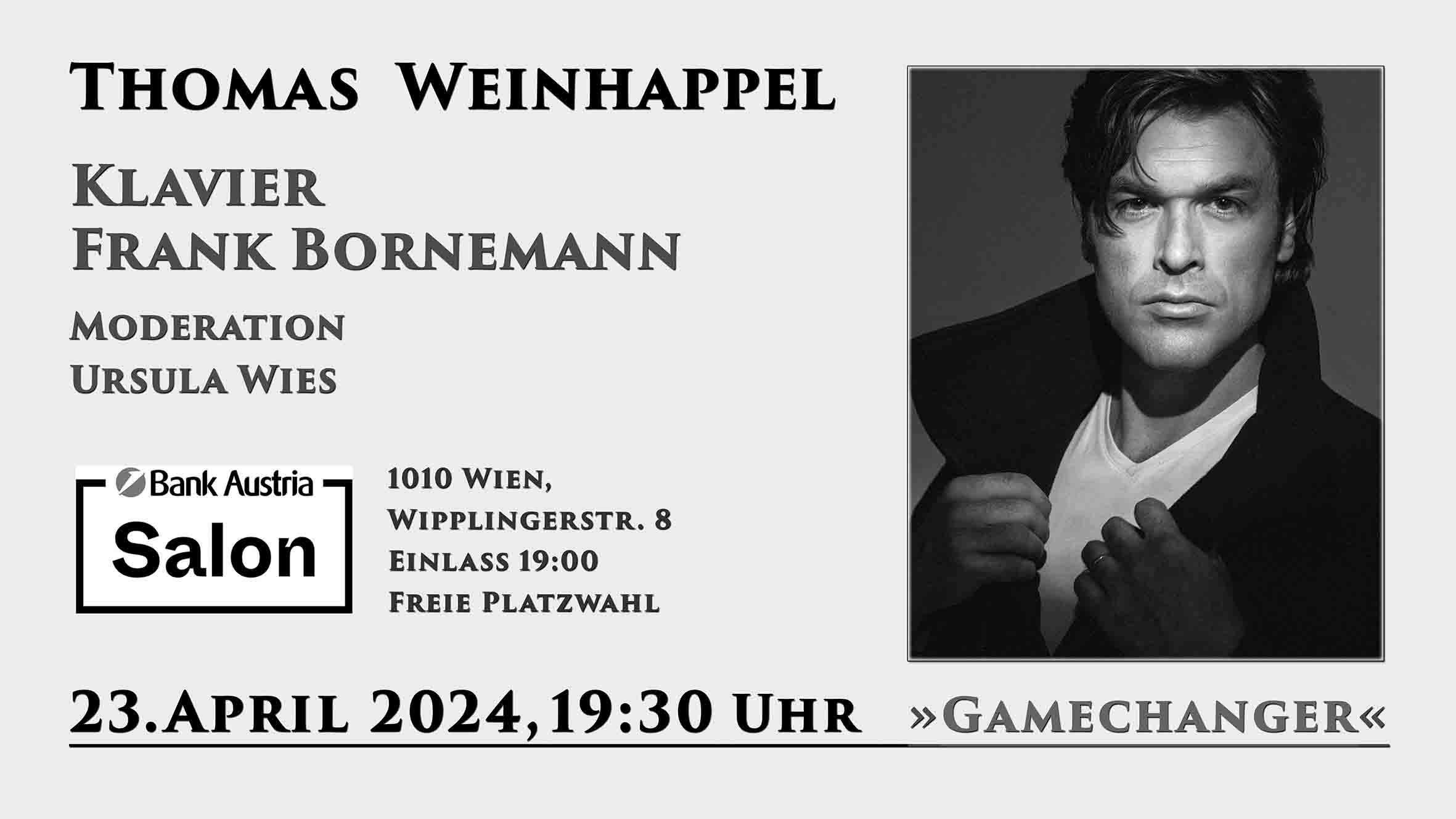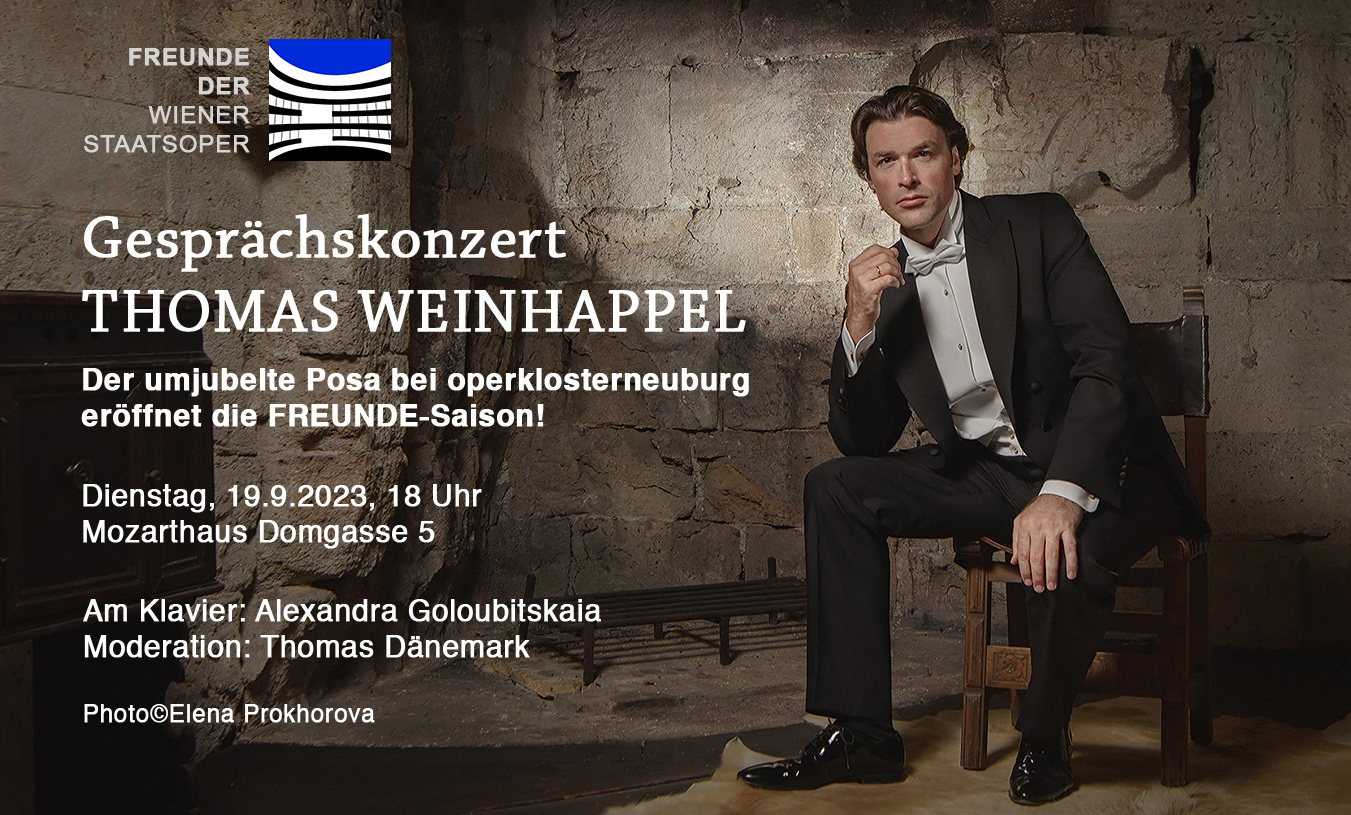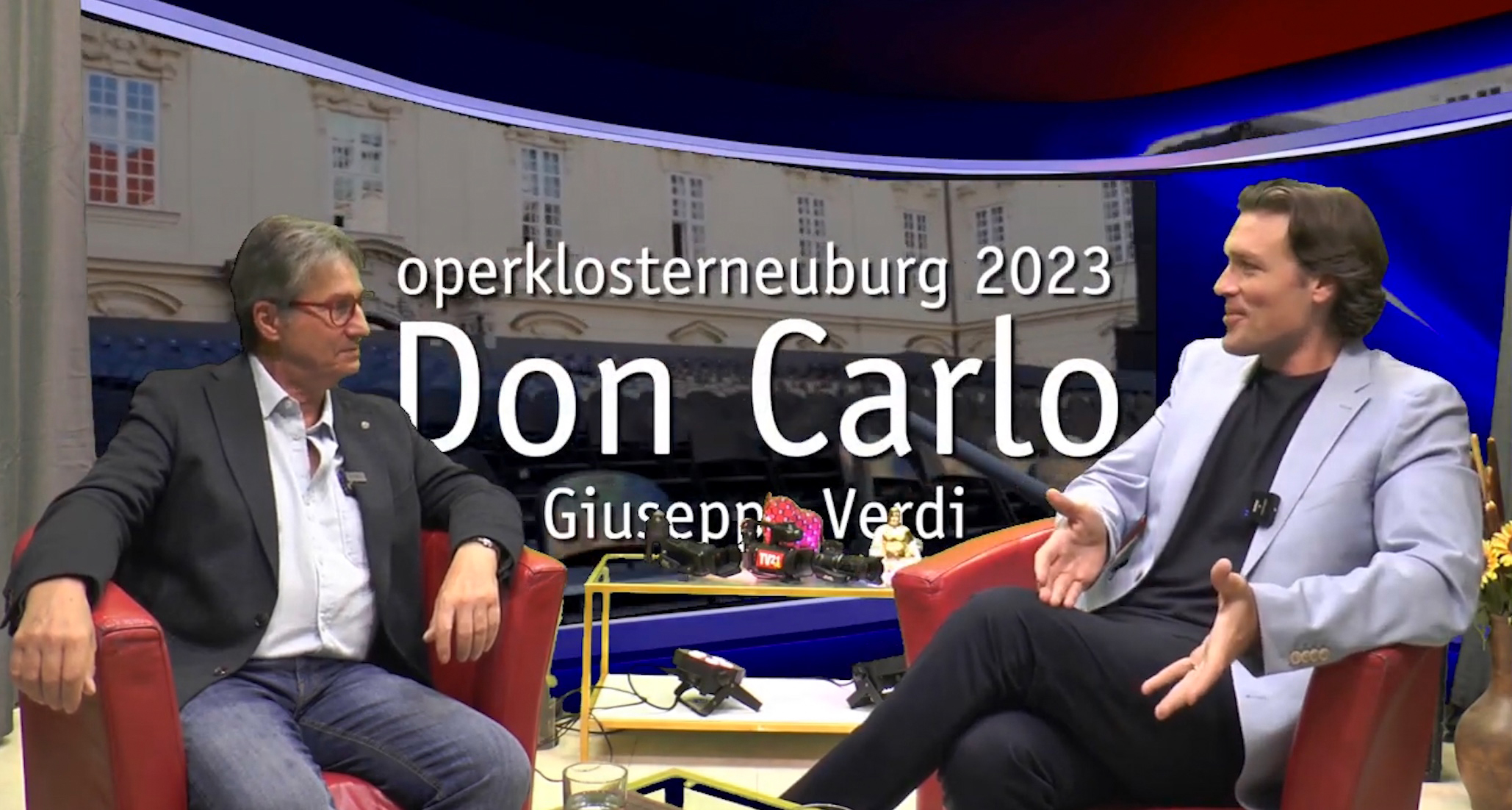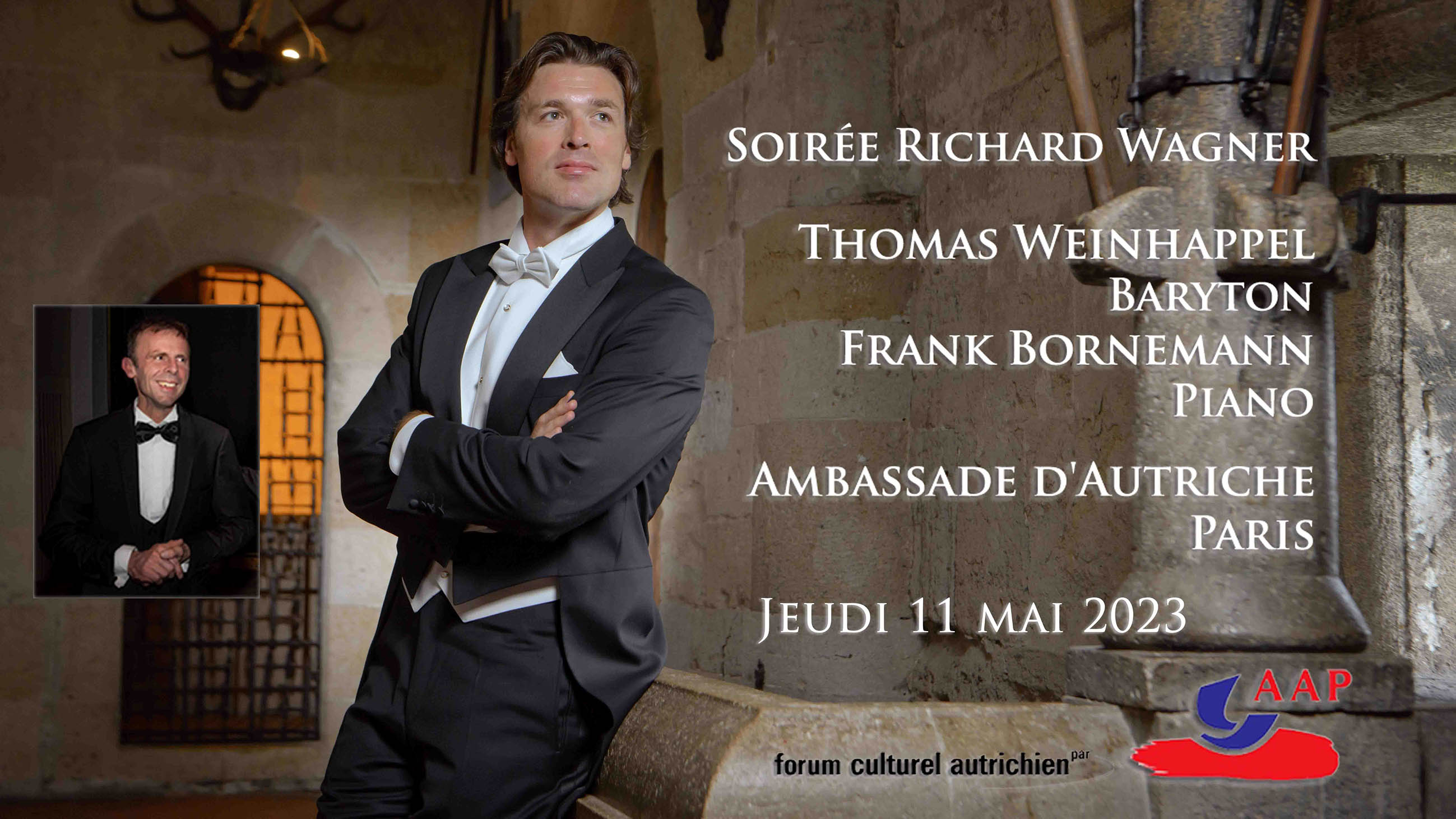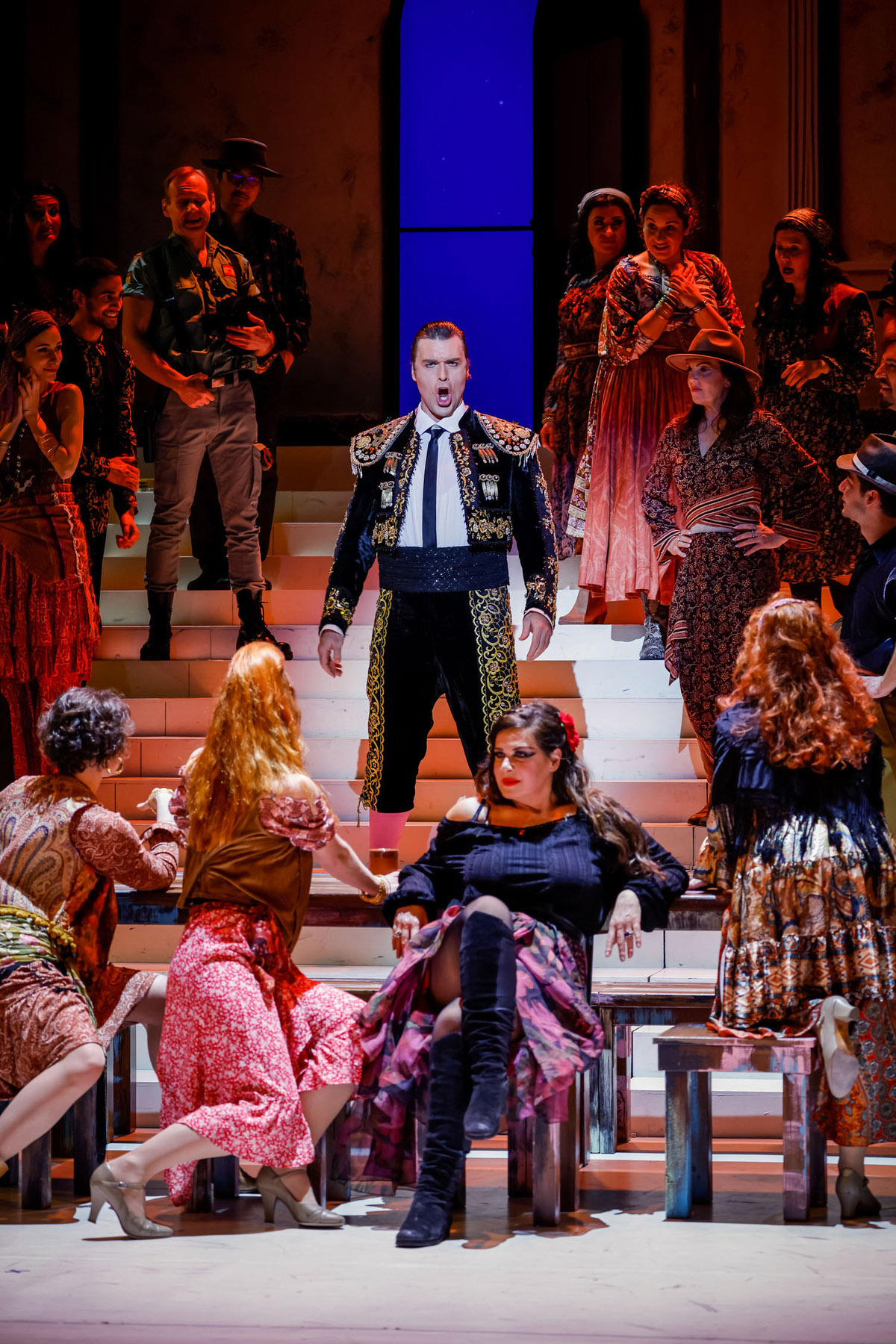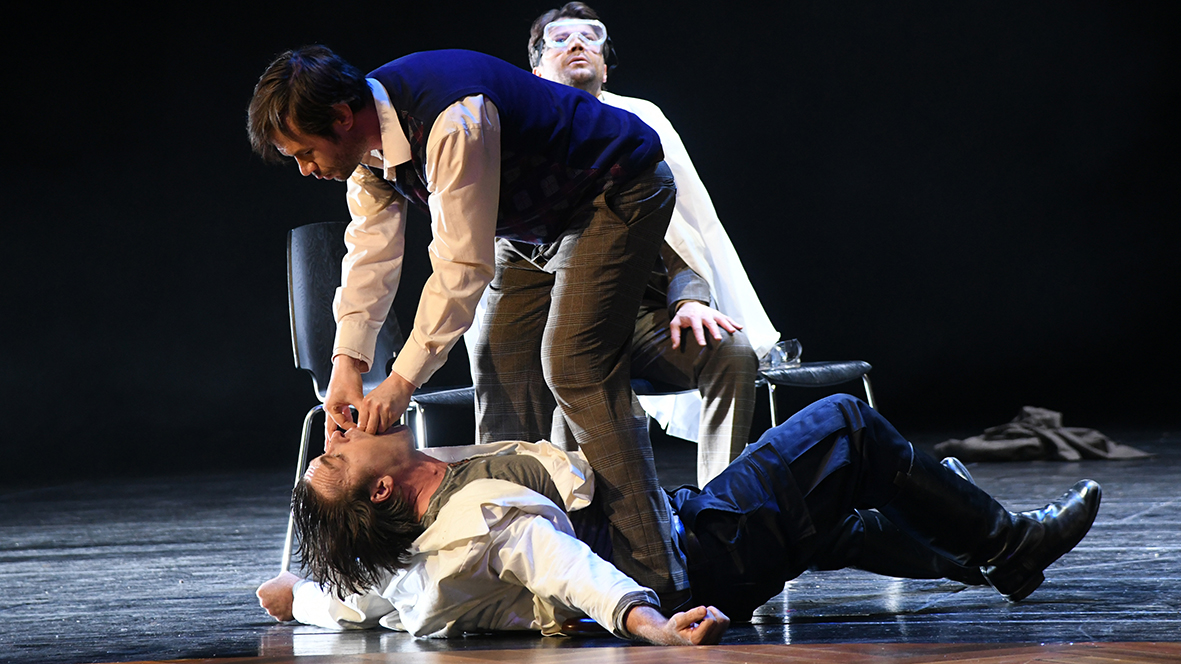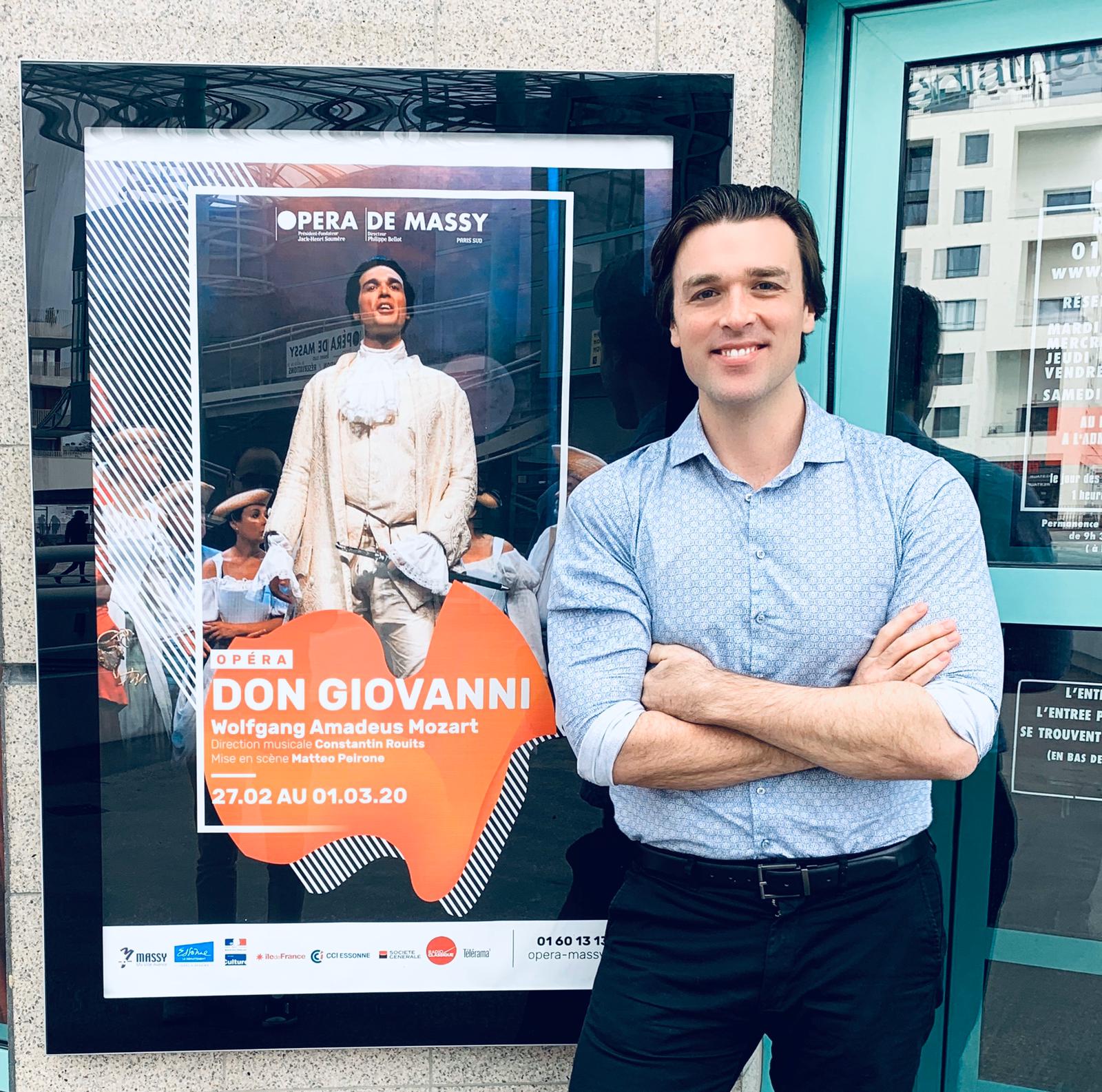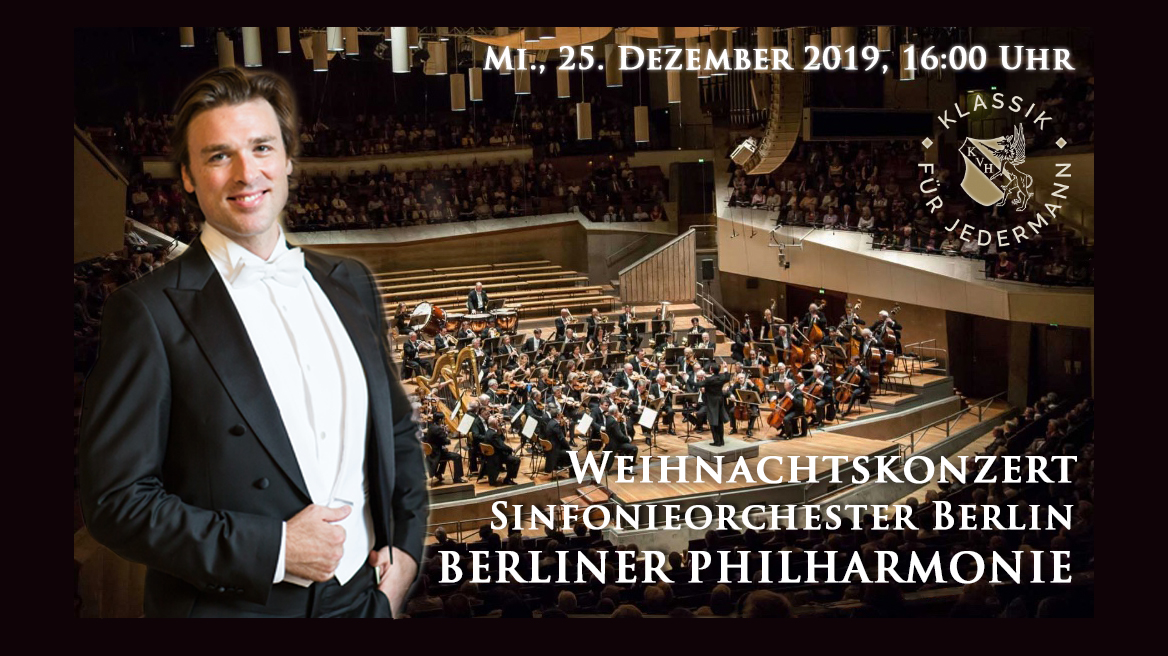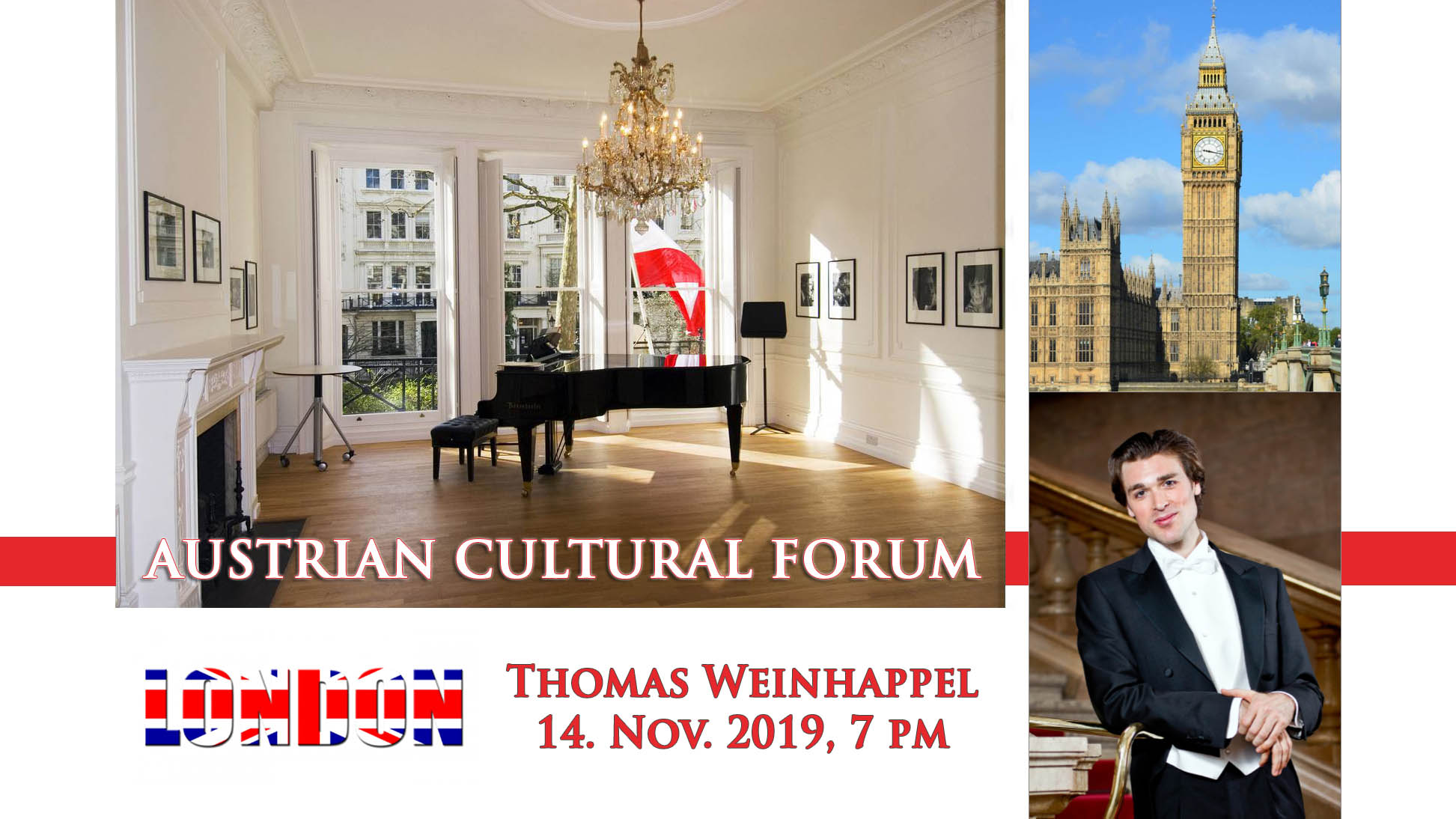BIOGRAPHY

Thomas Weinhappel has always set high standards for himself. Since his time as alto soloist with the Vienna Boys‘ Choir, and later at the Vienna University of Music and Performing Arts, where he graduated with honors as a Master of Arts, and later as student of his highly esteemed Prof. Eva Blahova, his natural optimism has sparked his determination to shape the future and to accept daunting challenges.
Encouraged by the Wagner specialist Stefan Mickisch, he took advantage of the forced Corona break to further cultivate his talents and to develop into a heroic baritone.
His career arc is proof that he enthusiastically strives for excellence and continually evolves and matures in his art. In the last few years he has appeared in numerous roles, still as a lyrical baritone, as Figaro (Der Barbier von Sevilla, Rossini, Kirchstetten, 2018), Wolfram (Tannhäuser, Berliner Philharmonie, 2019), Marcello (La Boheme, Klosterneuburg, 2022), and Hamlet (Hamlet/Thomas, Prague and Pilsen, 2017 and 2018.
Although he received the two highest ranking Czech opera prizes for his lyrical Hamlet in 2017 (Thalia Award with the title Best Opera Singer of the Year, and the Libuska Award for the most unusual role interpretation by the critics‘ jury of the OPERA Festival), these successes were not his ultimate goal.
On the contrary, he put the lockdown time to good use, reinventing himself, especially in German roles. Thus he amplified his stage persona amid the obstacles brought on by the pandemic: Driven by his optimistic attitude – to generate something positive from what at first glance seemed negative. Therefore it is not surprising that for this reason alone he is captivated by villain roles, such as Kaspar, Pizarro and Klingsor, and failures, such as Wotan, Telramund and Holländer or Joachanaan.
His curiosity to portray dark characters, of all things, was aroused already at the beginning of his career, which he launched as Leonetto at the Stadttheater Bern, with directors such as Christoph Schlingenschief (Mea Culpa, Burgtheater Wien, 2008), Otto Schenk (Ralph and Carol, Berlin, 2012) and Michael Haneke (in whose film The Piano Teacher he participated).
Haneke described the Austrian baritone‘s talent as follows: "He can make people out of roles,“ evoking Weinhappel‘s conviction that art - and opera in particular - is not just a realm beside actual life, but rather a wondrous integral component of our being. Weinhappel believes that it is the artist‘s task - and joy - to (re)unite opera and life, thereby putting them together, as one, "back on their feet,“ clear and energetic, for the audience to touch.
Impelled and inspired by this conception of identity and purpose, he developed roles such as Lukas (Schlafes Bruder, Vienna, 2009), Escamillo (Carmen, Singapore, 2016), Tarquinius (The Rape of Lucretia, Ostrava, 2018), Don Giovanni (Don Giovanni, Paris, 2020), Mandryka (Arabella), and Donner (Das Rheingold), as well as works such as Schubert‘s great song cycles (Winterreise and Schöne Müllnerin, Vienna, 2018), Schumann‘s Dichterliebe, Vienna, 2020, and Mahler’s Lieder eines fahrenden Gesellen, Budapest, 2013.
His appearances in Sofia included his role as Pater Ecstaticus in Mahler‘s 8th Symphony, 2018, and in Mahler‘s Lied von der Erde in 2021. His performances in contemporary works have been in Carmina Burana, Grafenegg, 2015, Graz, 2019, and Staatsoperette, Bregenzer Festspiele, 2016. Occasionally he made forays into the domain of operetta (as Danilo in The Merry Widow and Count Homonay in The Gypsy Baron, Stadttheater Baden, 2019).
An increasingly important aspect of his life‘s work is his commitment to children afflicted with neurofibromatosis. Encounters with these children and their affected families led him, in 2017, to begin organizing, and performing in, benefit concerts for the International Patient Organization for Children with Neurofibromatosis. Since 2019 it is his honor and privilege to serve as their Austrian Cultural Ambassador.
In December, 2021 he sang with the Royal Philharmonic Orchestra in highly acclaimed Christmas concerts in Liverpool. In summer 2022 he garnered extraordinary praise for his first interpretation of Marcello in Puccini‘s La Bohème.
At the turn of the year 2022/2023 he celebrated his debut in Bremerhaven as Carl Maria von Weber‘s Kaspar in Freischütz. This was his second role of the list of his new tasks as a heroic baritone. His convincing portrayal of Wotan at the Donaufestival 2021 paved the way for a new chapter in Thomas Weinhappel’s dynamic odyssey.
Further on he sang in february 2023 Escamillo (Carmen) at the stage of Baden and sang in summer 2023 Posa (Don Carlos) at the festival of Klosterneuburg near Vienna (Director Günther Groissböck).
In october 2023 he sang Danilo in Bejing's NCPA opera house and in november 2023 a benefit concert in favor of the Vienna Boys' Choir (Richard-Wagner-Evening: Flying Dutchman, Telramund, Wolfram, Wotan) in Vienna.
2024 he sang his Wagner concerts with Tanja Kuhn and Almerija Delic in Vienna (January and April 2024) and Kaspar at the festival of Eutin in summer 2024. He ended the year on December 25, 2024 with a performance at the Philharmonie Berlin, where he sang both Wotan (Rheingold) and Rigoletto with great success.
2025 Scarpia at Bühne Baden will follow.![]() Repertoire
Repertoire
»Gamechanger II«
Verdi & Donizetti
4. September 2025, 19:30
BANK AUSTRIA SALON
1010 Wien, Wipplingerstr. 8
Tickets: thomas-konzert@gmx.at


LA TRAVIATA
Wiener Opernsommer
Dirigent Joji Hattori,
Regie Dominik Am Zehnhoff-Söns,
Bühne Manfred Waba,
Choreographie Melanie Wurzer
jeweils 20 Uhr im Juli am
1./ 3./ 5./ 9./ 11./ 14./ 17./ 19.
OPERNARENA AM HEUMARKT,
1010 WIEN
EMOTION Richard-Strauss-Abend
Salome und Arabella mit Sera Gösch
Klavier Frank Bornemann
Borromäussaal, 1030 Wien
Mi., 26. März 2025,

Bühne Baden/Wien
Baron Scarpia
Premiere
Sa. 22. Feb.,
KRITIK - online merker
25.2.2025 S.Pfabigan:
https://onlinemerker.com/baden-bei-wien-stadttheater-tosca-sonntag-nachmittagsvorstellung/
»Der Star des Abends blieb demnach Thomas Weinhappel.
Da stimmte nicht nur alles, sondern er vermochte uns ganz neue Wege zum Rollenverständnis zu öffnen. Zum Erwecken von Sympathien für Scarpia trug bereits sein gutes, sympathisches Aussehen bei. Ein relativ junger „Il Barone Scarpia, Capo della Polizia“ mit viel Temperament und einem Charme, mit dem er die Floria Tosca besitzen zu können vermeinte. Dass da ein Spiel im Spiel mitspielte, ließ sich kaum leugnen. Es machte ihm sichtlich Spaß.
Dazu verhalf ihm seine immer kräftiger werdende, aber auch sehr schöne, ebenmäßig geführte Baritonstimme, die sich im Italienischen ebenso selbstverständlich aussagekräftig erweist wie in seiner Muttersprache (in der er natürlich weiterhin auf das große Wagner-Fach hinarbeitet).
Wann und wo immer er gerade auf der Bühne war, wurde er zum Mittelpunkt. Nicht zuletzt muss ein Erzittern des gesamten Zuschauerraums die Folge sein, wenn ihn Tosca ersticht und er mit aller Gewalt vermeint, am Leben bleiben zu müssen… Weinhappel ist ein singender Vollblutschauspieler. Der entsprechende Schlussapplaus des ganzen Hauses für ihn hat es bestätigt.«
WEIHNACHTSKONZERT
Philharmonie Berlin, 25.12.2024
»Die große Überraschung des Abends
war der österreichische Bariton Thomas Weinhappel, der bereits von der Presse
als kommender Wagner-Göttervater
bezeichnet wurde.
Mit seinem stimmgewaltigen, majestätischen „Abendlich strahlt der Sonne Auge“
aus dem Wagnerschen Rheingold
entsprach er diesem Nimbus vollkommen.
Damit nicht genug, empfahl er sich auch im Verdi-Fach mit „Cortigiani“
als verzweifelter, in allen Lagen versierter Rigoletto;
auch andernorts hat man diese Partie lange nicht so ausdrucksstark gehört.«
WEIHNACHTSKONZERT
Mittwoch, 18.12.2024,
Stiftskirche Klosterneuburg

SCHECKÜBERGABE AN DIE
NF-KINDER DURCH
KATHARINA BAUMGARTNER
2024
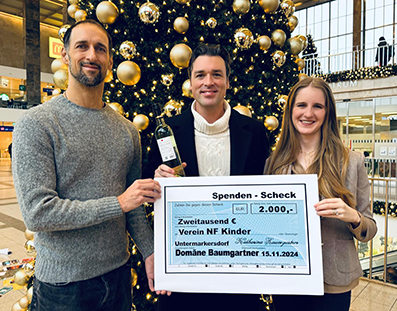

VERLEIHUNG DER
GOTTLOB-FRICK-MEDAILLE
20.10. 2024, Ölbronn - Dürrn

»GUDRUN«
Darmstadtium, Darmstadt
So, 6.10. 2024
Raimund Thomas Weinhappel

»Konfrontationen«
WAGNER ABEND
10. September 2024, 19:30
BANK AUSTRIA SALON![]() Wotan-Fricka 2.Akt
Wotan-Fricka 2.Akt
Kritiken
_________________________

DER FREISCHÜTZ - Kaspar
19. Juli 2024, 20:00
Dirigent: Leslie Suganandarajah
Regie: Anthony Pilavachi
Yidan Wang, China Media Group
vom 8.10.2023 in Peking
2.Akt Holländer vom 16.1.2024
2.Akt Walküre vom 16.1.2024

WAGNERABEND 2024
BANK AUSTRIA SALON
16. Jänner 2024, 19:30 Uhr
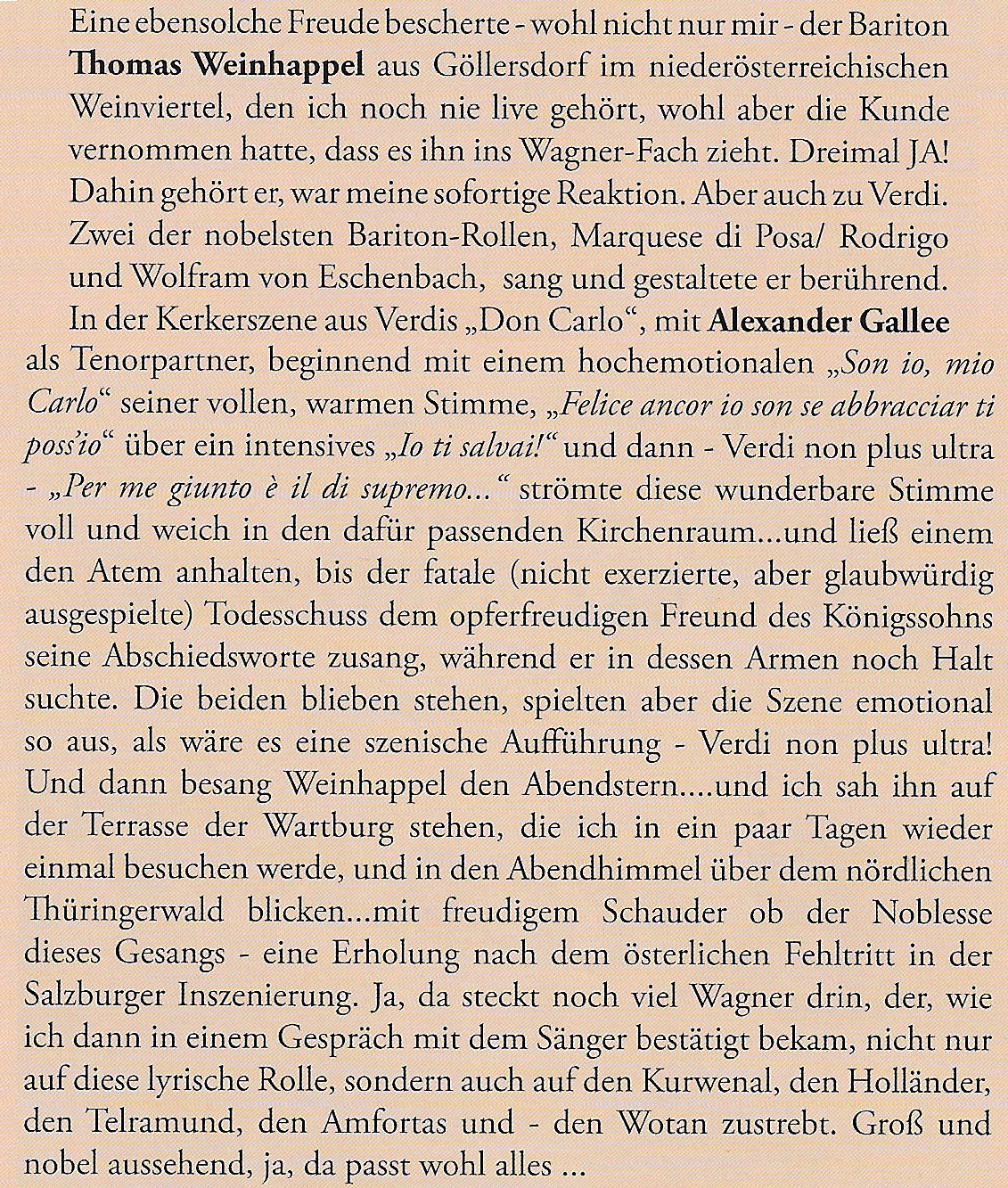
Kritik, U4 (Seite 74) "40 Jahre
Jubiläumskonzert Amici del Belcanto" aus:
Neuer Merker 5/2023, Dr. Sieglinde Pfabigan

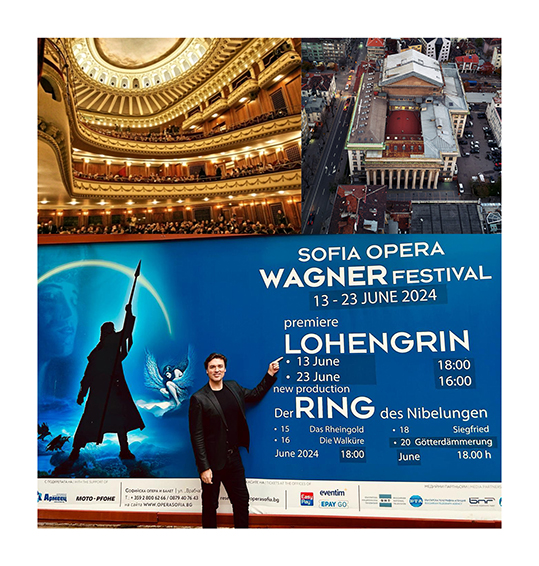
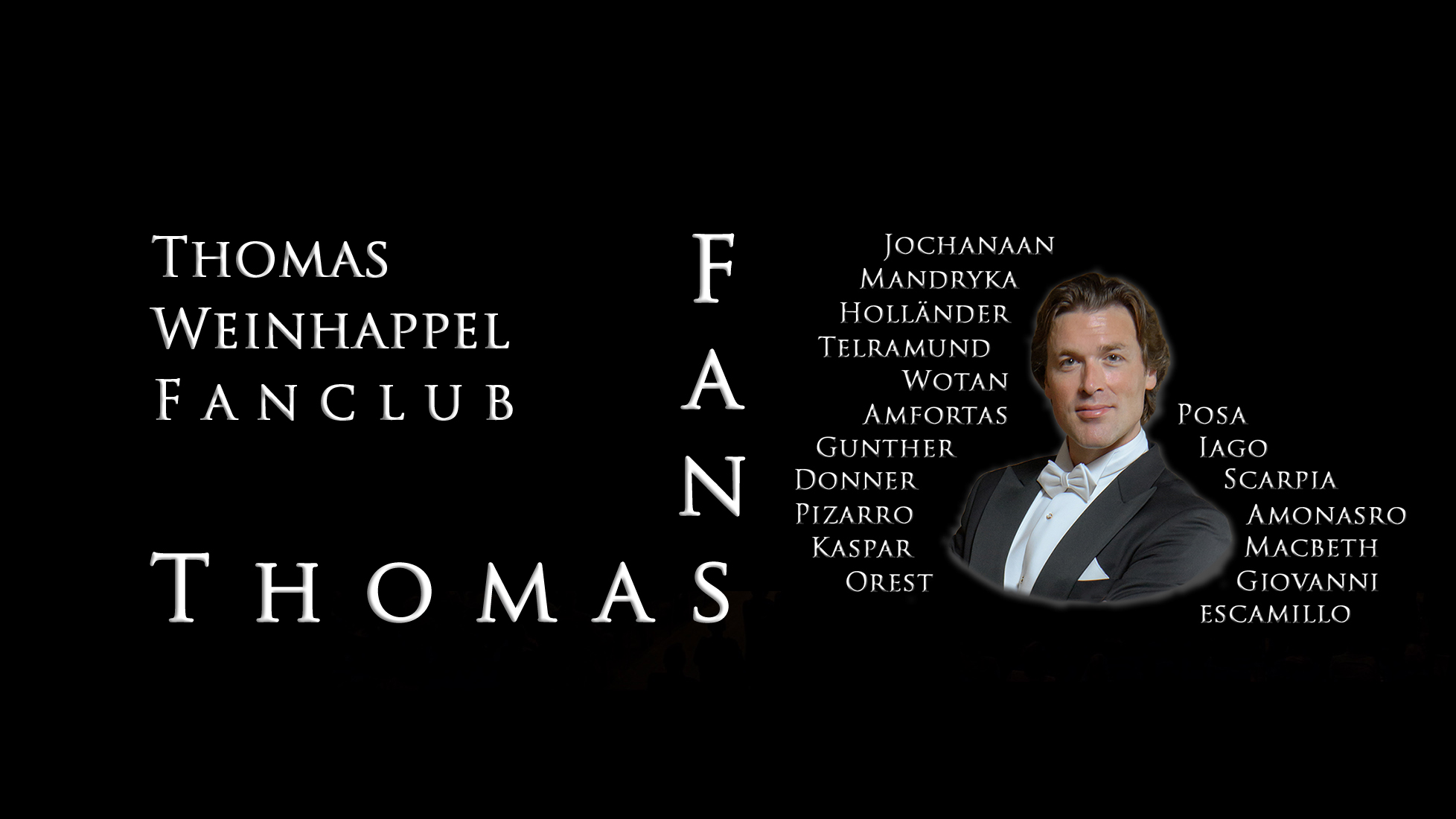
 DE
DE  EN
EN 